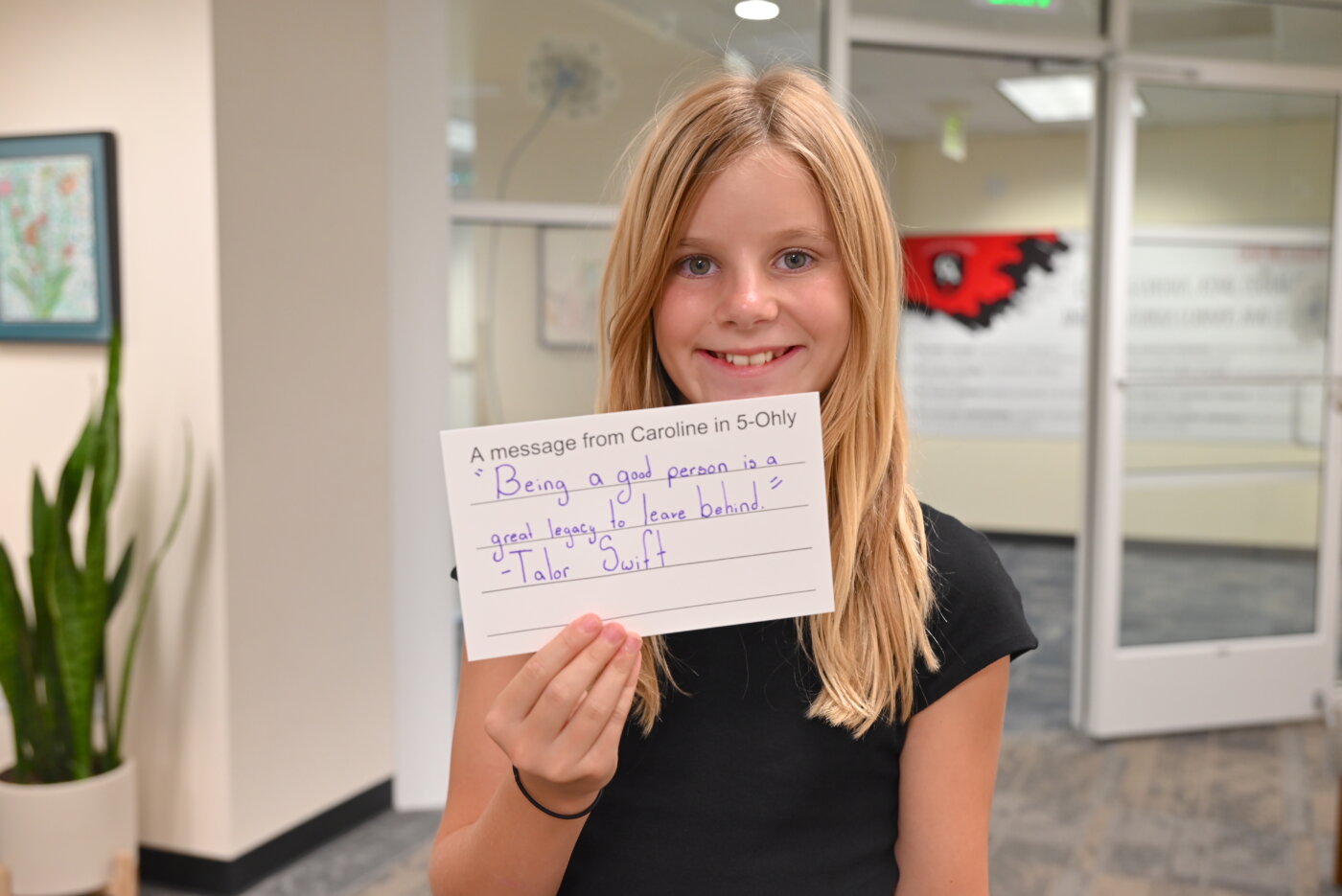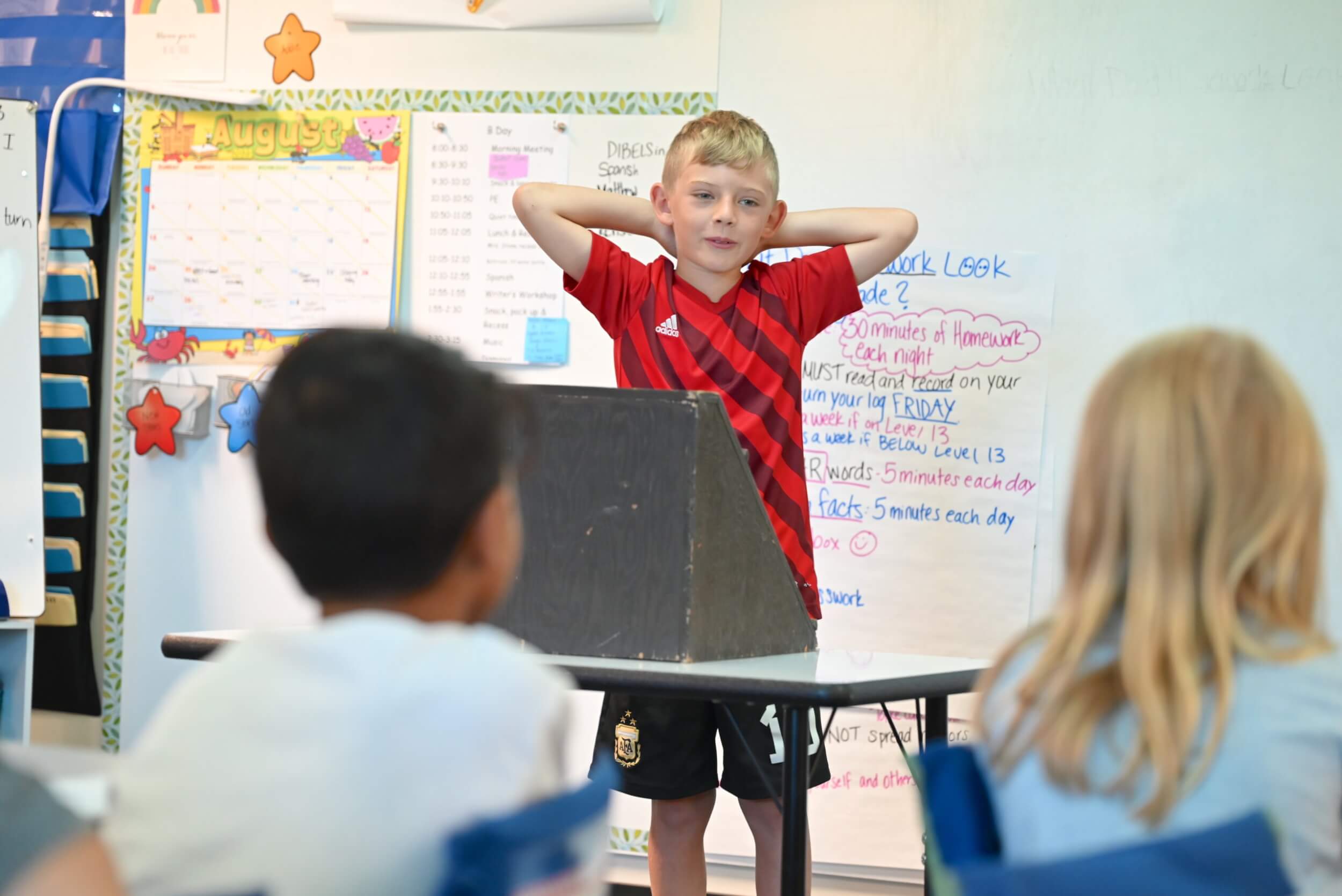The candidates’ speeches are heartfelt, funny, no-nonsense, confessional. One acknowledges, “This position is really important to me because I like to plan things.” Another pledges, “I will work hard, and I promise to listen to your suggestions and try to make a difference.” A third reasons, “You can be sure I’m good at compromising because I live with my older brother and I need to compromise with him every day.” And one jokes, “This summer while I was hiking near a lake, I stepped on a beehive. That’s why I want to ‘bee’ your representative!”
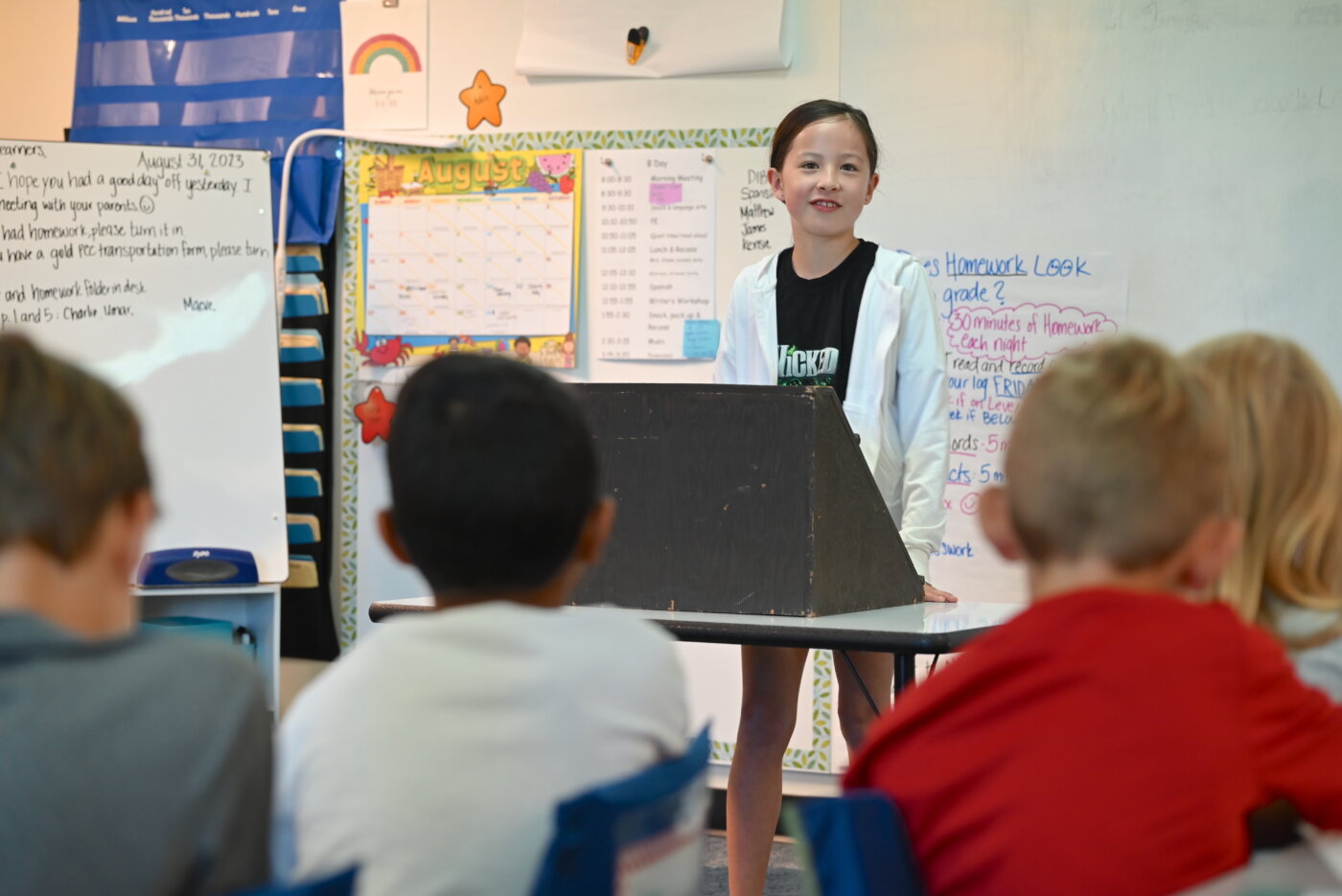
These candidates are running for Colorado Academy’s Lower School Student Council, a group of nine Third through Fifth Graders who work closely with Principal Angie Crabtree to build connections across grades, inspire school spirit, serve as role models in their classrooms, and even effect school-wide change. “This is one of the biggest opportunities we offer our students,” Crabtree says. “On Student Council, we ask them to lead themselves, and then lead their peers.”
The elected members have a range of responsibilities, from communicating the wants and needs of their classmates to Crabtree, to soliciting suggestions for special themed days and celebrations; and from speaking to the Lower School community during Town Meetings, to planning major events such as the annual Halloween Parade.
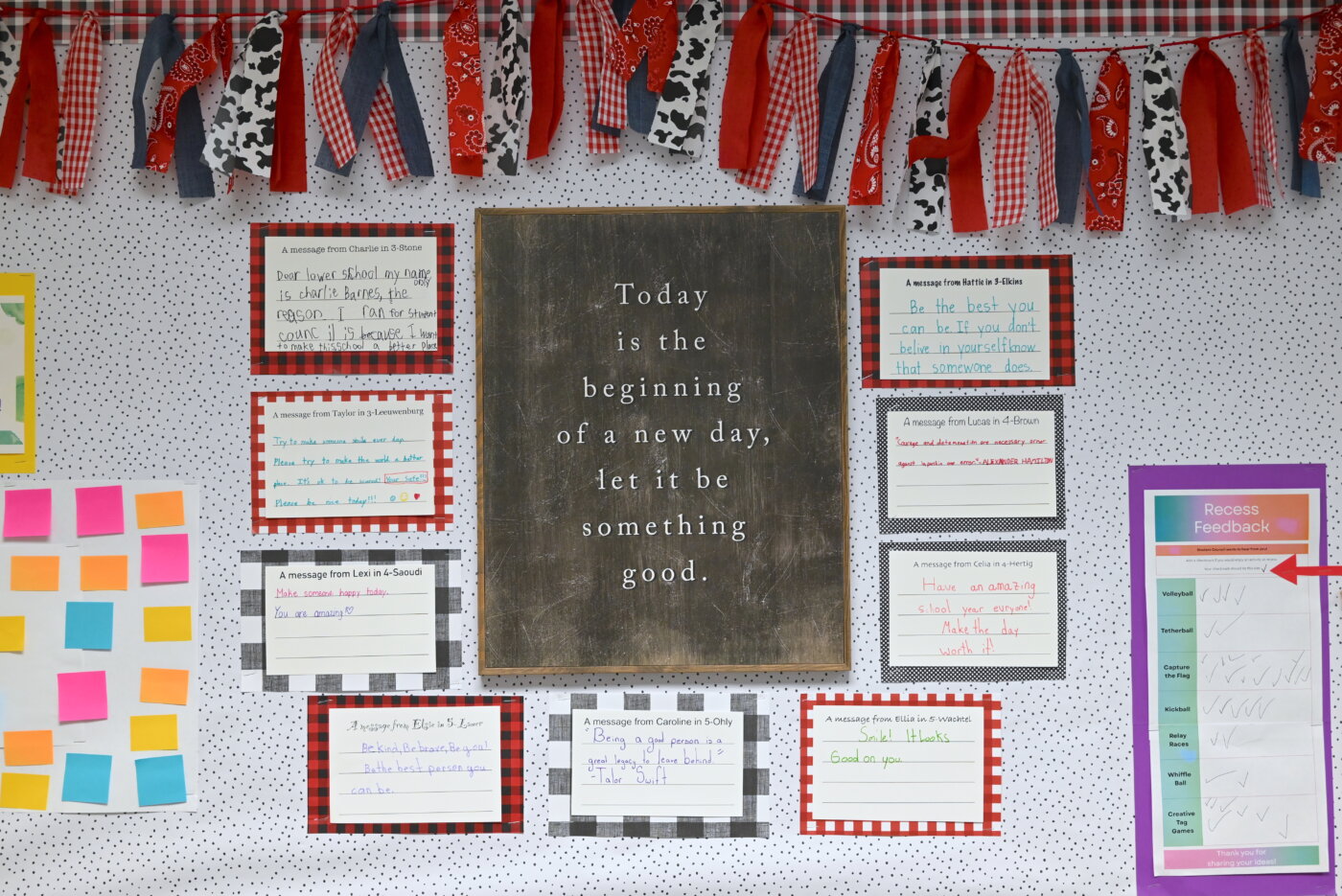
“With the Student Council members, we talk about the different kinds of leadership—quiet leaders, thoughtful leaders, out-there-in-the-front leaders,” explains Crabtree. “We want them to have that experience of getting buy-in with their peers to make change. They see that they’re in a school community that’s truly student led.”
Reasons to lead
Student Council is part of a suite of leadership opportunities Crabtree has implemented across the Lower School. There are Mustang Mentors, Fifth Graders who visit Pre-K classrooms to guide the youngest students during learning time and fun activities. There are Buddies, the Third, Fourth, and Fifth Graders paired up with students in Kindergarten through Grade Two for reading, projects, and other kinds of sharing.
But for many Lower Schoolers, Student Council is the opportunity they’ve been waiting for.
Interested candidates prepare speeches to deliver during the first few weeks of school to their homeroom classmates, who immediately cast a secret vote for their top two choices. Some hopefuls are passionate about making school more fun and festive; others are motivated by a love of community-building. All receive equal consideration by their peers.
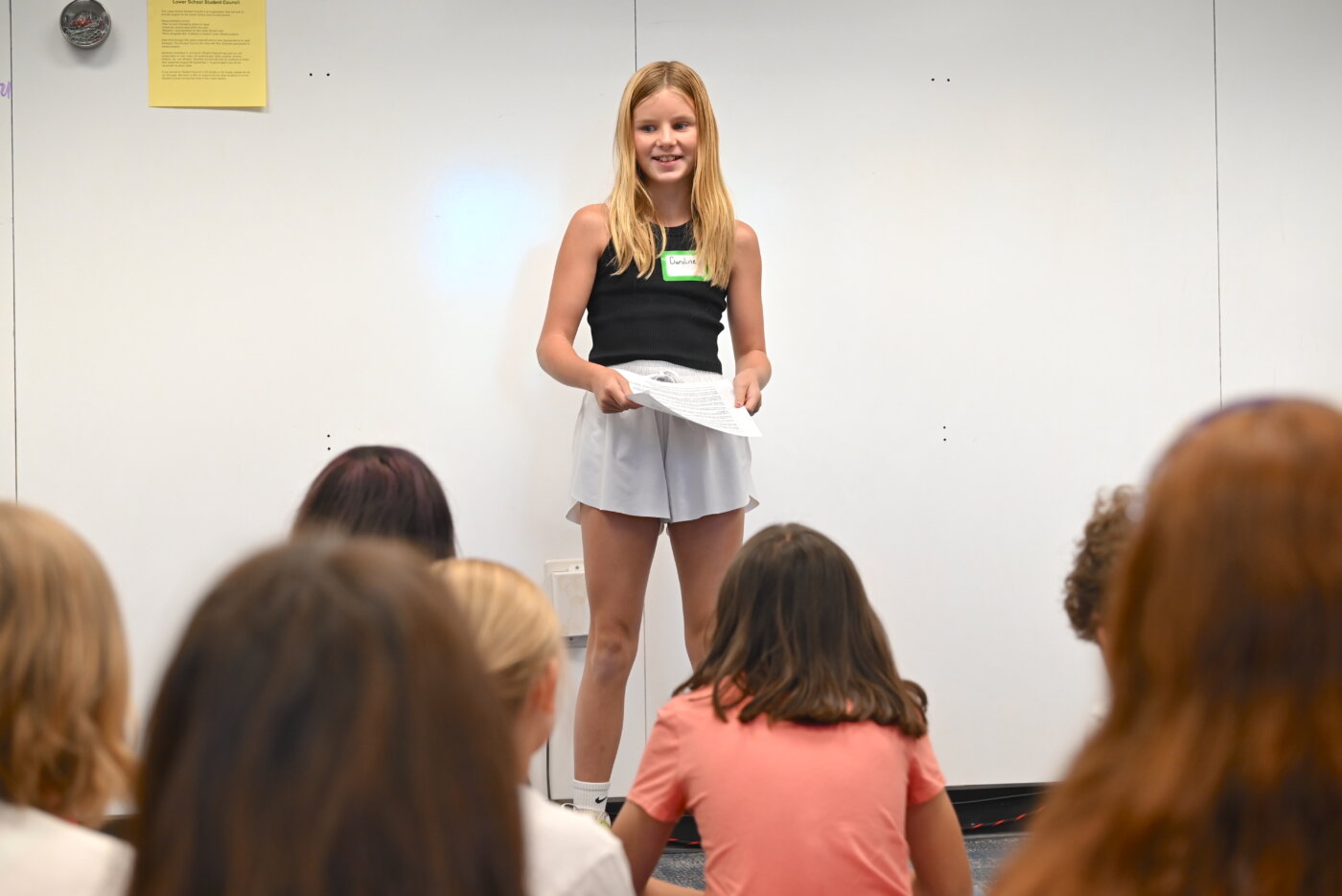
For Fifth Grader Caroline Miller, serving on Student Council represents a goal she’s had since she arrived at CA in Second Grade. “CA is like a second home to me,” she tells her classmates. “And as the leaders of the Lower School, I know it’s up to Student Council to guide students to success. In order to do this, we need a strong person to represent our class. I will always be there to help make the Lower School a better place.”
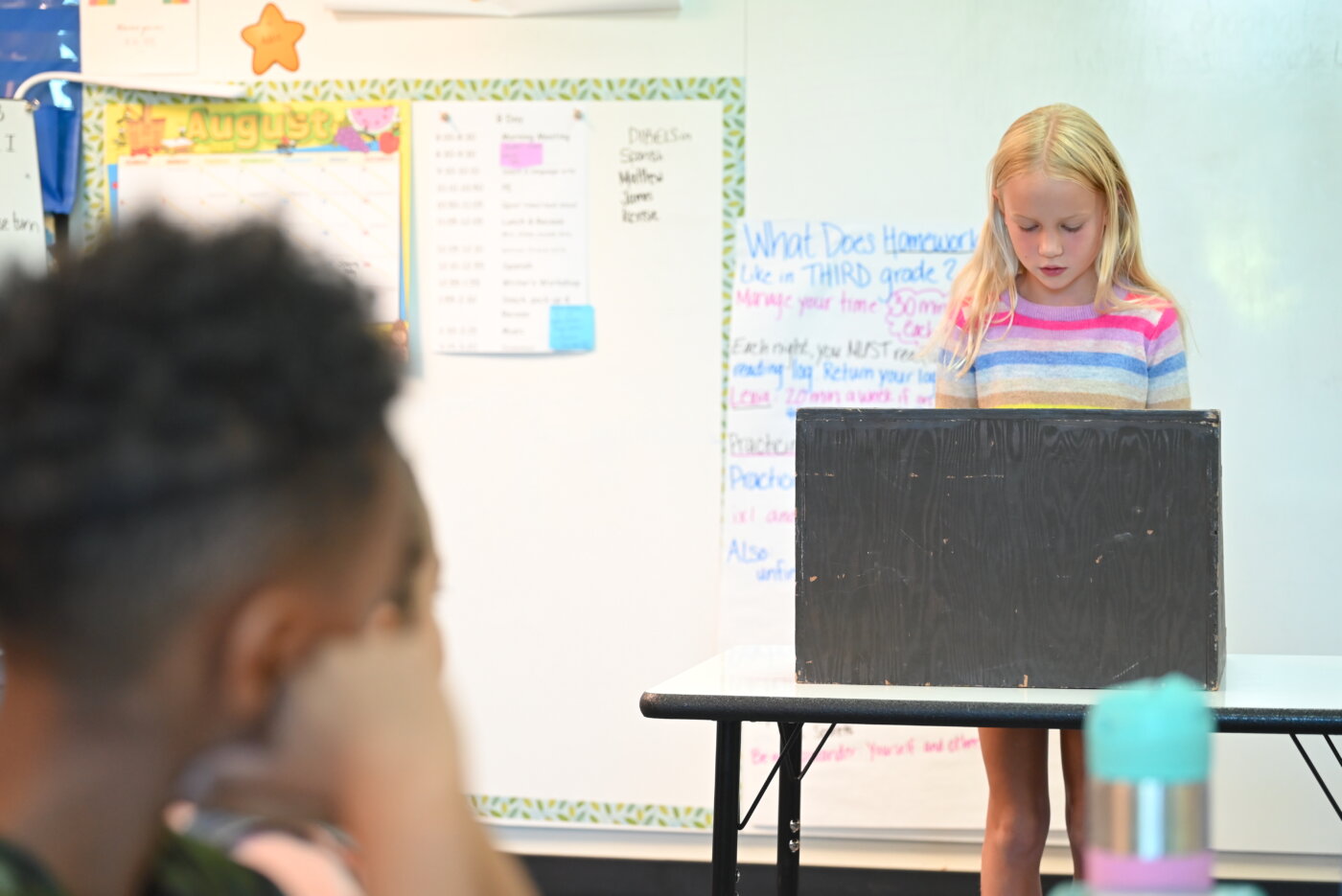
Third Grader Addie Rosenfield-Layton, too, has long envisioned participating in Student Council. “Ever since I first saw them when I was in Pre-K, I’ve dreamed of doing it—going up on stage, making announcements, changing things to make the school better, like picking up trash or even choosing different snacks. I will stand up for myself; I think you should make choices that are kind, safe, and respectful.”
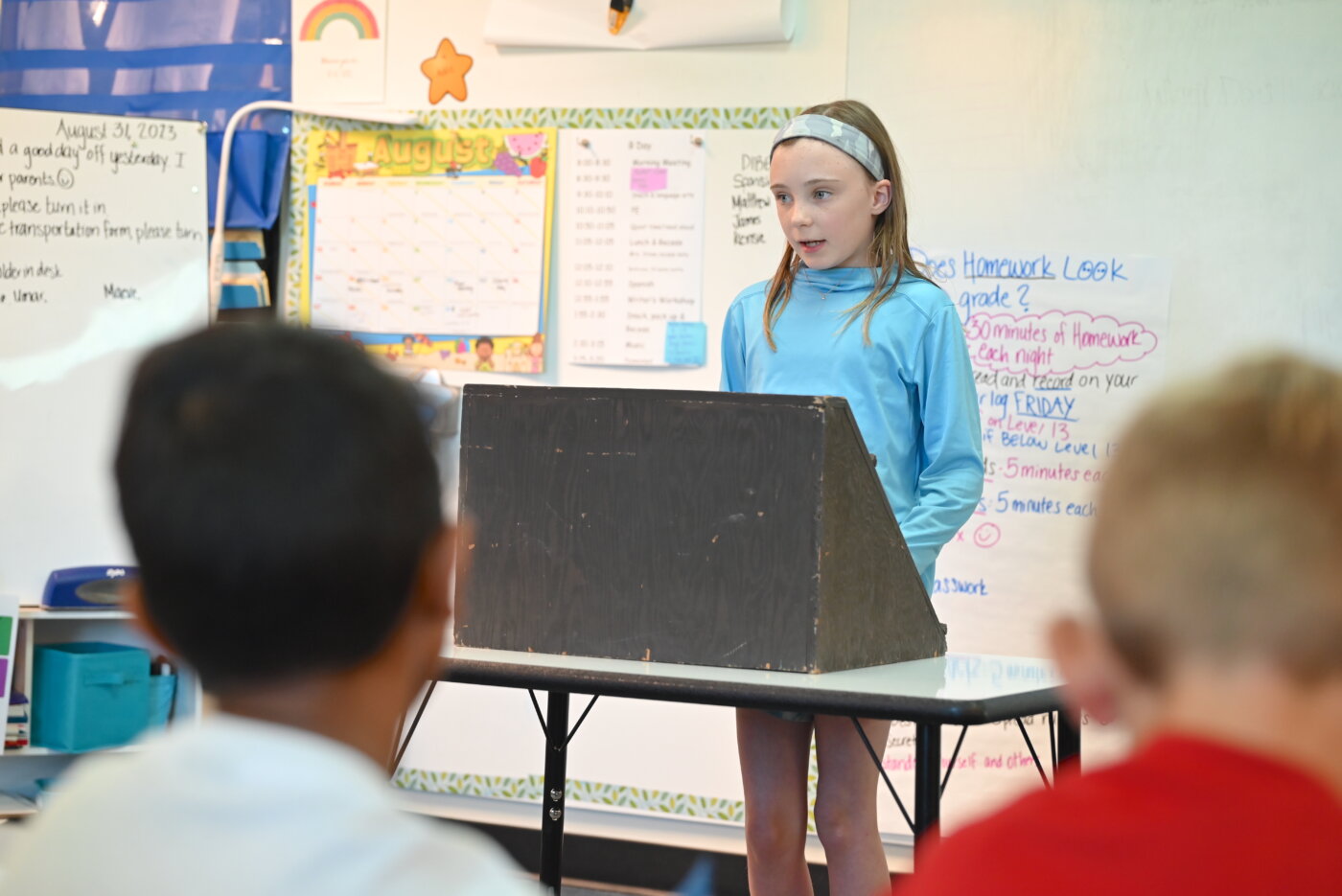
New to CA, another Third Grader, Clare Gunn-Roller, acknowledges, “I may still be figuring a few things out, but I can already tell this is an amazing school, and I want to help make it even better.”
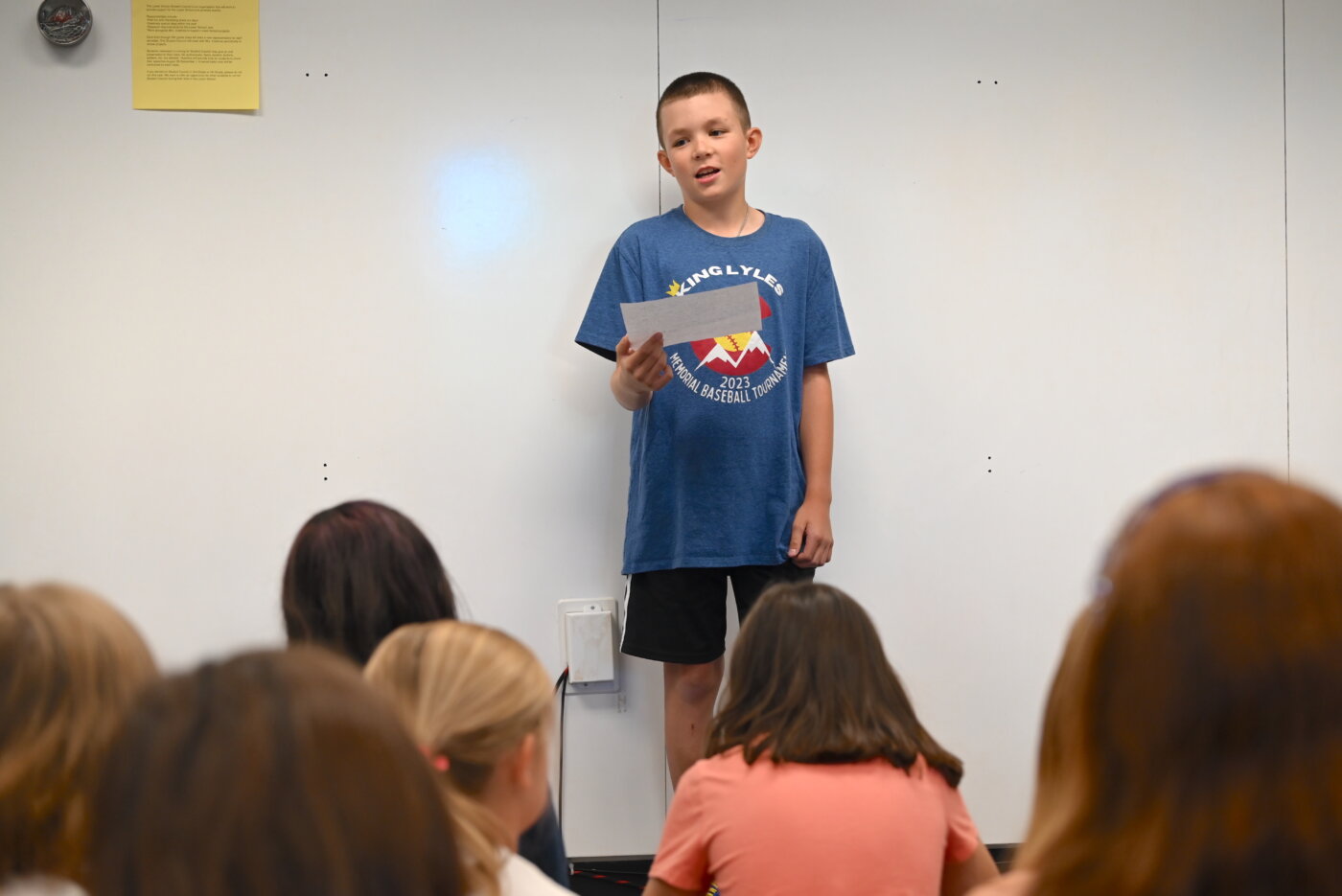
Fifth Grade candidate Xander Berba sounds polished and reassuring when he tells his classmates, “I will do my very best to work with you on your ideas and recommendations to improve our school.”
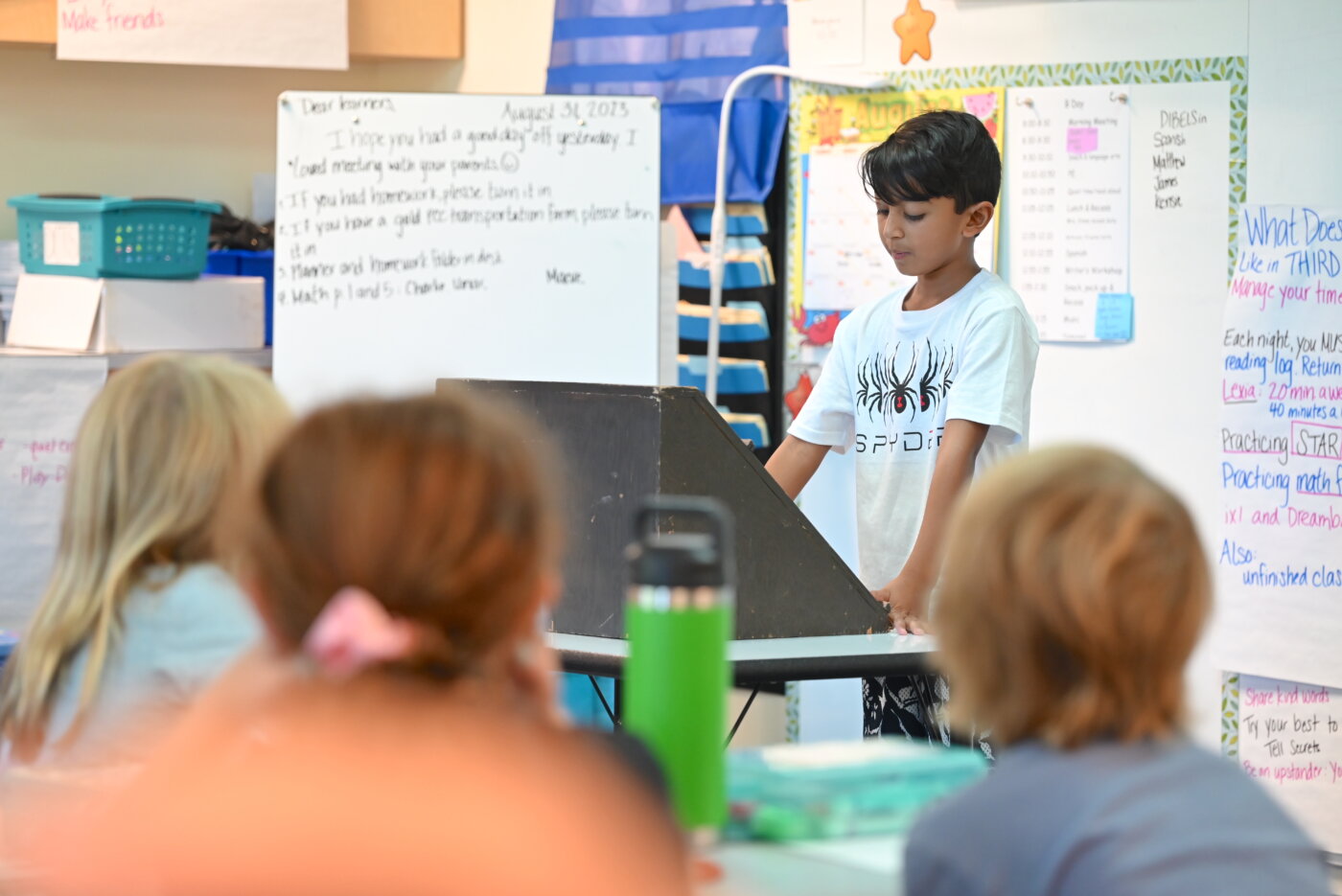
And Third Grader Isaac Joymon emphasizes, “I’m open to new ideas and listening to others. I’m a responsible person, since I do all my chores at home without any reminders or money: I make my bed and bring in the mail every day. I love my family and my school, and I will do my best to represent our class.”
Hot topics
Once the speeches are over and the votes have been tallied by Third, Fourth, and Fifth Grade homeroom teachers, the chosen representatives quickly get down to work in their regular meetings with Crabtree, who usually asks students to share their observations and ideas. “We discuss improvements they’d like to see, initiatives they want feedback on, and events that we’re planning together.”
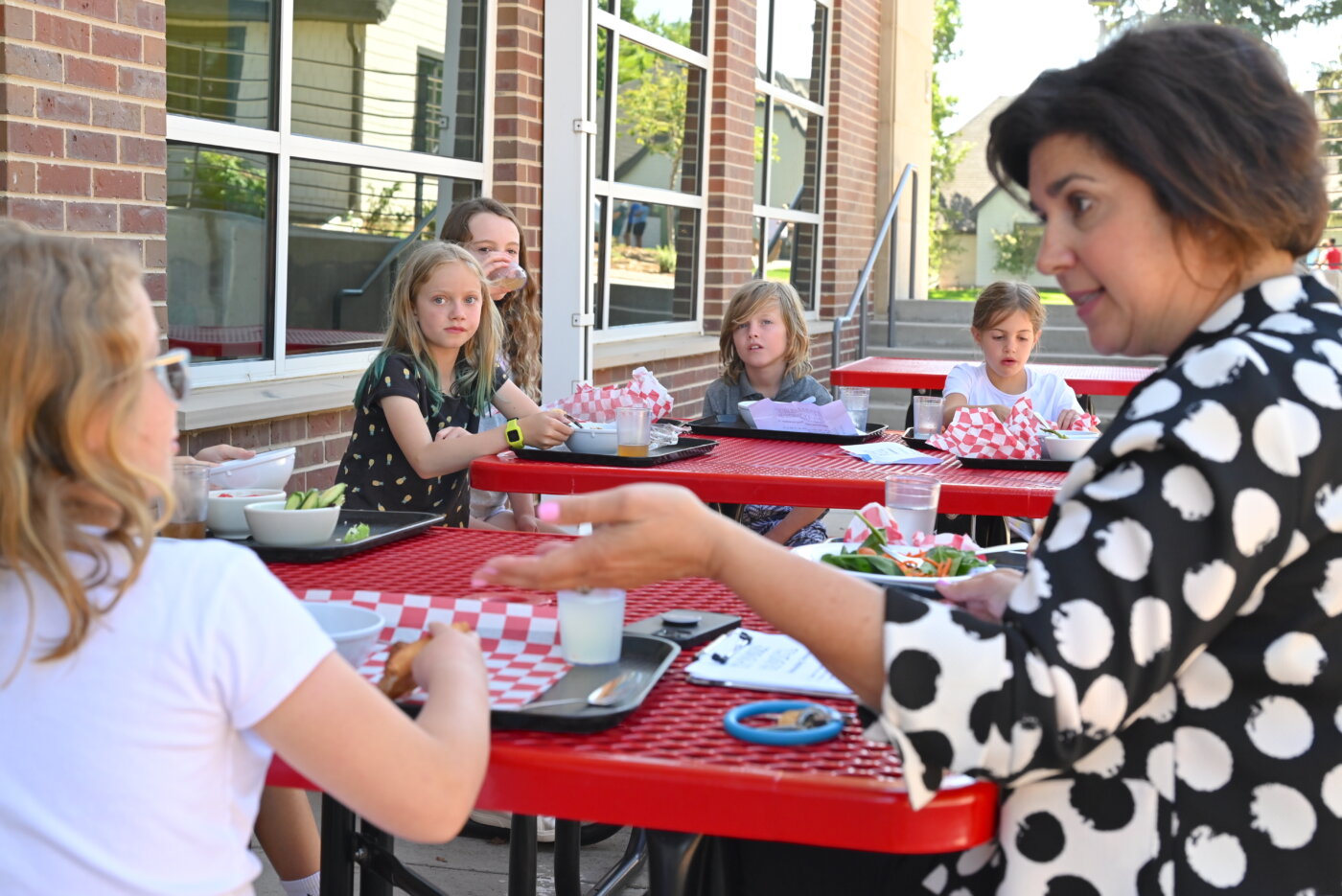
At one meeting, the Lower School playing field is the hot topic. Several Student Council members agree with Fourth Grader Lexi Berba that the Gagaball pit needs better drainage, a cover, or more wood chips to ensure it’s usable even in winter.
When Crabtree poses the question, “With our new soccer goals, do you think soccer tends to dominate recess time on the field?” many of the representatives want to chime in with their thoughts.
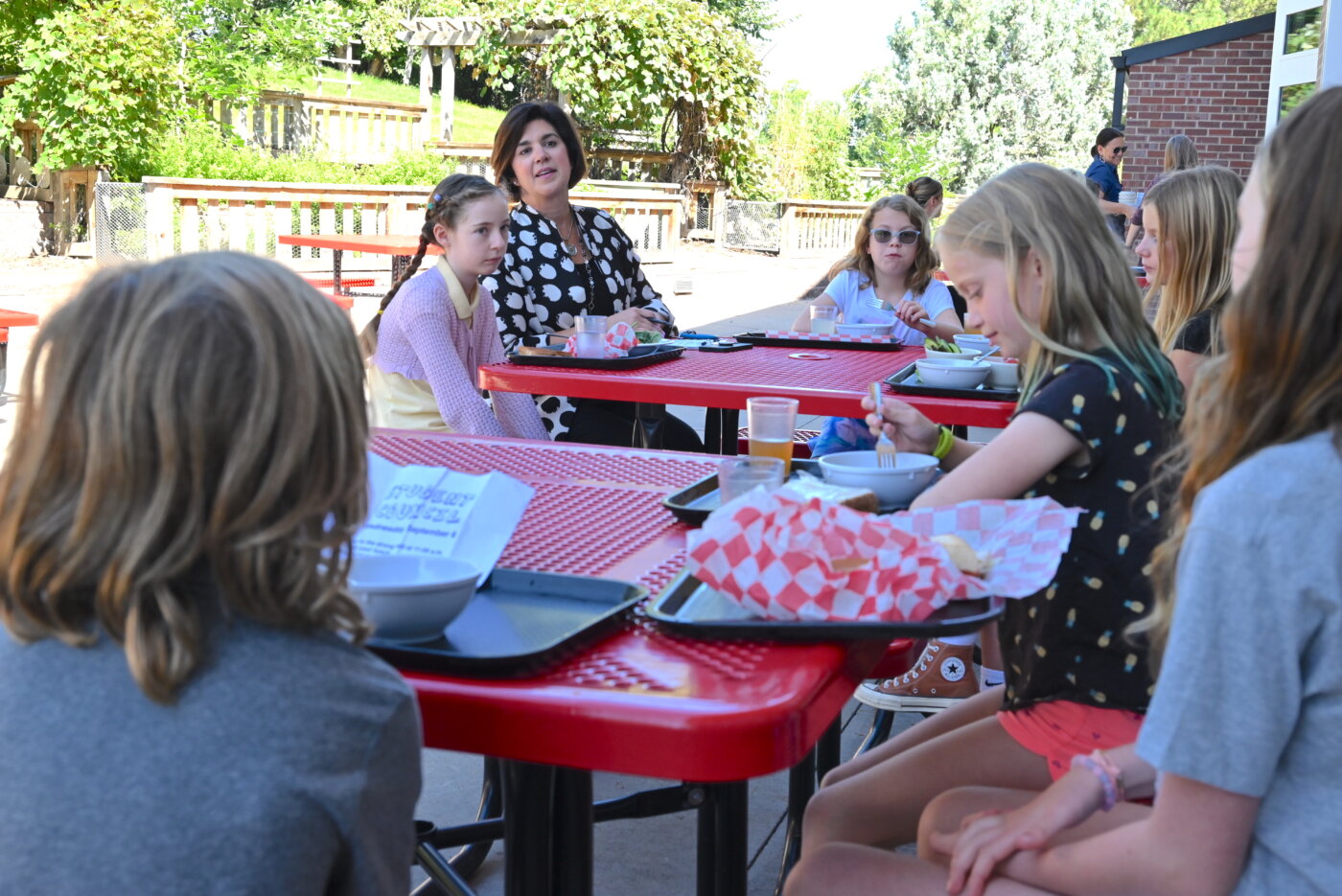
Kids come back to the classroom after recess arguing about who won the soccer game, one observes, and the disputes sometimes continue even during quiet time. “It’s not fun for everyone.” Another suggests special recess days where soccer is switched out in favor of kickball or another game. “Maybe it would make kids try something new.”
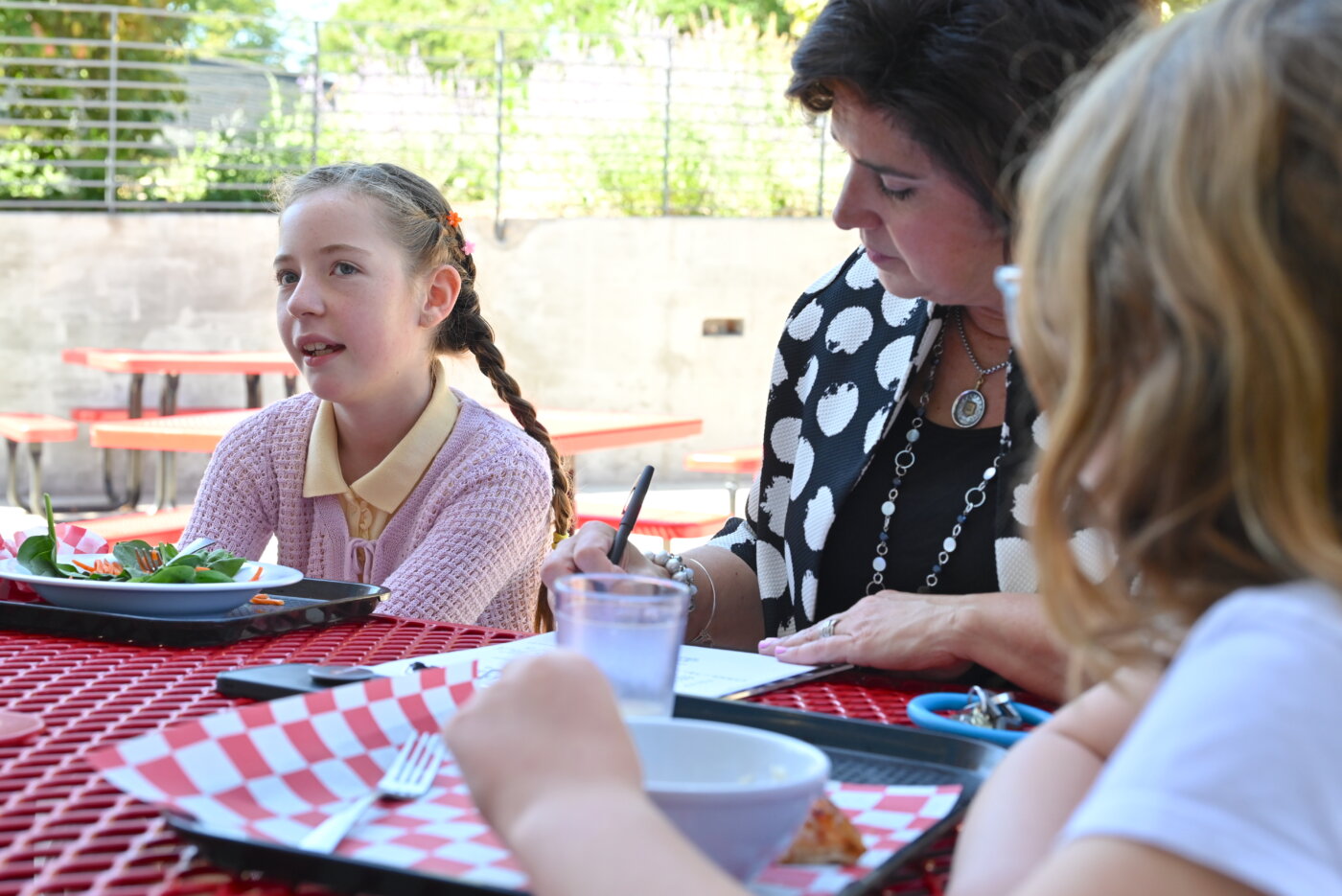
Fourth Grader Celia Lew Young has been eager to share a different kind of idea: a drive she’d like to sponsor in the Lower School. “I volunteer at the Denver Animal Shelter, and I was thinking maybe we could do a drive like HOPE where we collect old towels and things like that to donate to the shelter.”
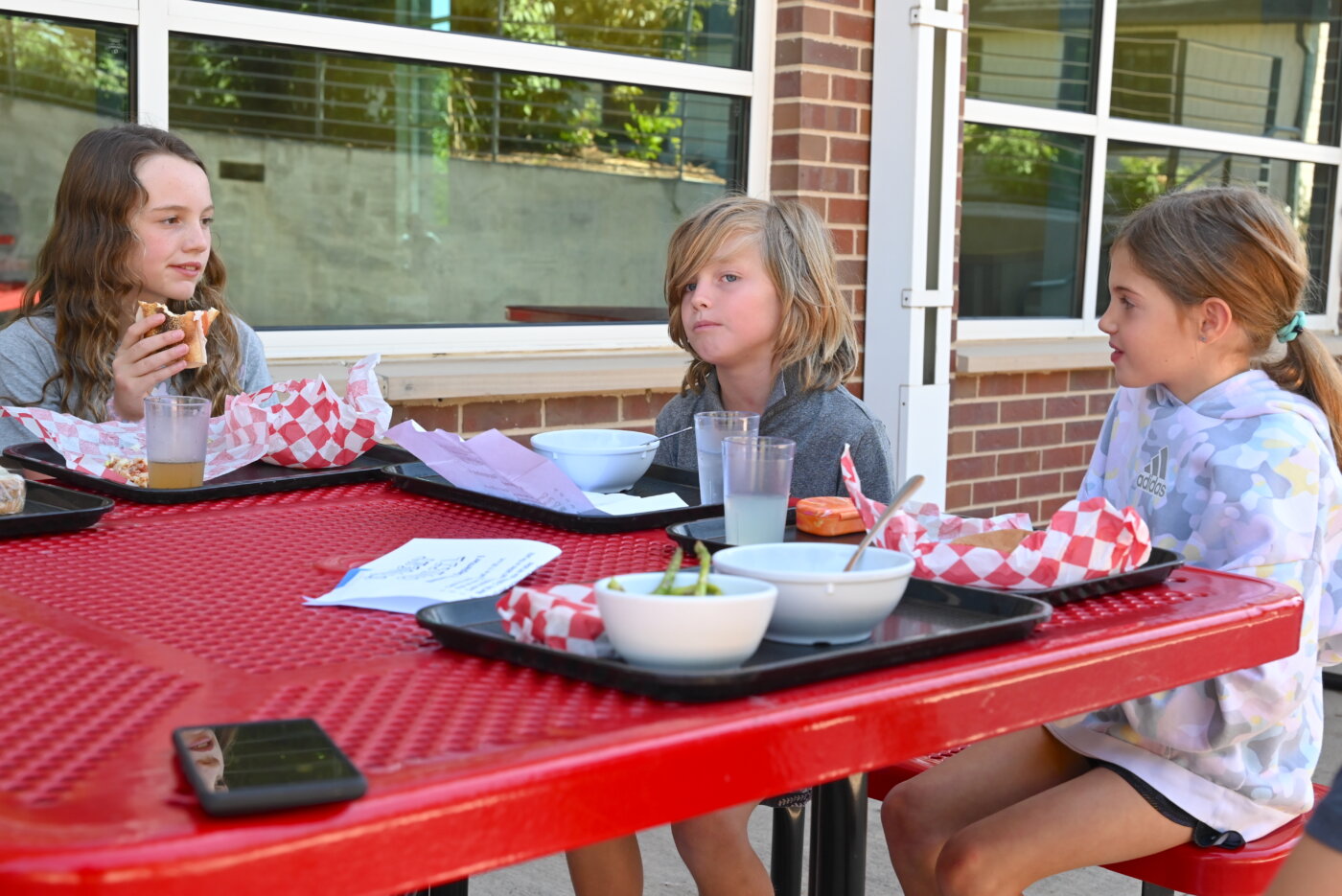
And Third Grader Charlie Barnes is thinking about food. “Could we talk to Chef Paul about having waffles and bacon for lunch?”
A wonderful legacy
Crabtree gently teases Barnes, who included a one-of-a-kind promise as part of his campaign speech. “I have long hair,” he explains, “and everyone was telling me to get a haircut. So I said if I was elected to Student Council, I’d let the class decide if I had to cut my hair.” The voters let him keep his blonde locks, though he’s still probably getting a trim “just to clean it up,” he says.
Now firmly entrenched in the shared memories of these particular Student Council members, the “haircut challenge” is just one moment in the midst of many serious and not-so-serious discussions which continue through the fall and winter. Dress-up days, hallway decorations, thank-you cards for faculty and staff, volunteer opportunities—all this and more is up for debate among these Third, Fourth, and Fifth Graders, who are so excited to be thinking about the future of their school.
And in January, a new group of representatives will give their speeches and be elected, devising their own solutions to the Lower School’s most pressing issues.
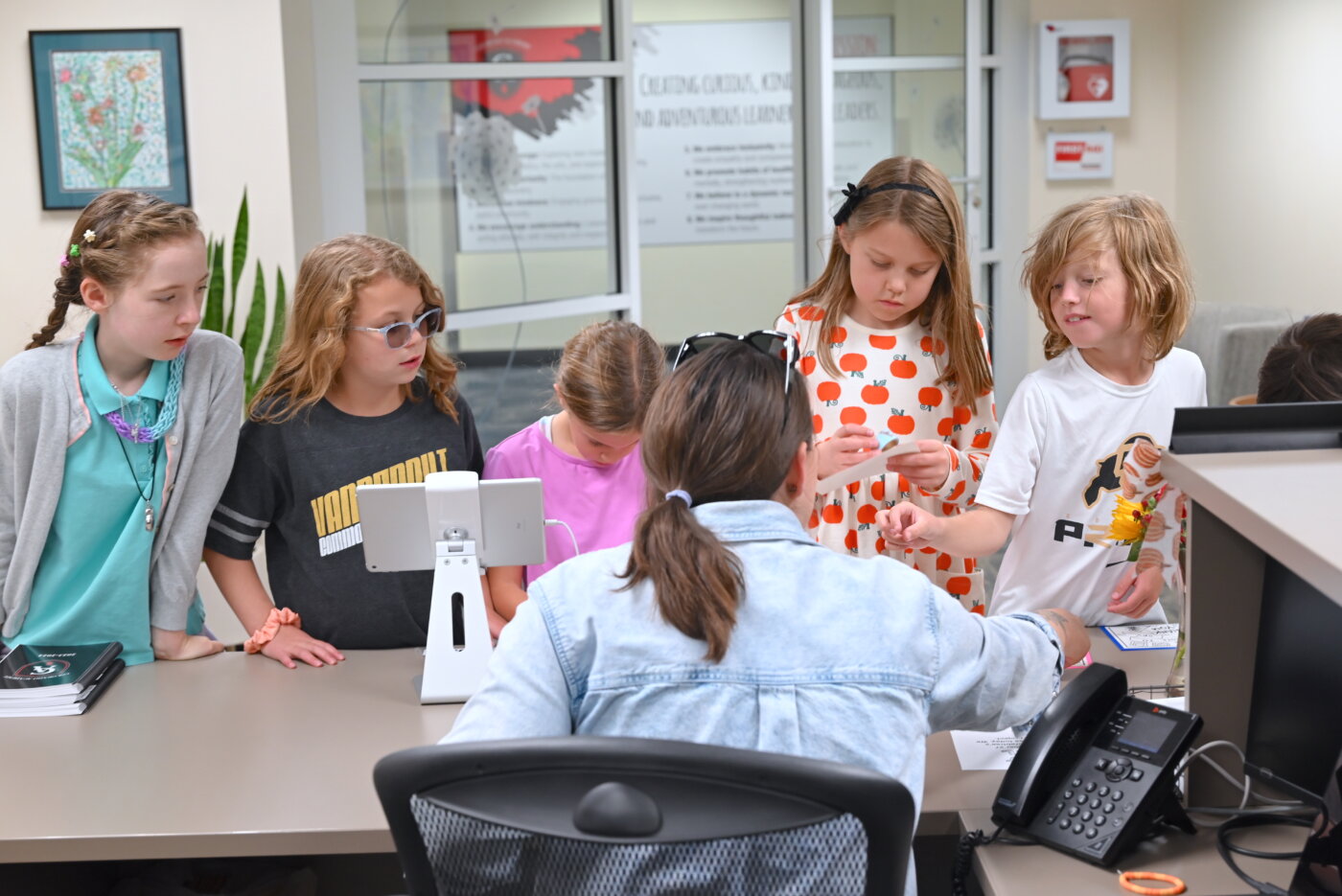
“We want everyone in the Lower School to have an opportunity for those leadership moments,” says Crabtree. “Because when we see them move on to the Middle School and Upper School, these are the ones who are showing the way, or raising questions, or trying to serve in different ways.”
Or as Caroline Miller puts it, “When I get elected, everyone gets elected. Like Taylor Swift said, ‘Being good to people is a wonderful legacy to leave behind.’”
